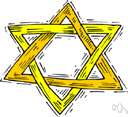tradition
Also found in: Thesaurus, Legal, Idioms, Encyclopedia, Wikipedia.
tra·di·tion
(trə-dĭsh′ən)n.
1. The passing down of elements of a culture from generation to generation, especially by oral communication: cultural practices that are preserved by tradition.
2.
a. A mode of thought or behavior followed by a people continuously from generation to generation; a custom or usage: the traditions of Tibetan Buddhism.
b. A set of such customs and usages viewed as a coherent body of precedents influencing the present: followed family tradition in dress and manners. See Synonyms at heritage.
3. A precept or a body of precepts that are not written in the sacred book of a religion, such as the Bible, but are considered holy or true.
4. A style or method of an activity or practice, especially of artistic expression, that is recognized and sometimes imitated: satire in the tradition of Jonathan Swift.
5. A piece of folklore: "a popular medieval tradition that identified the queen of Sheba with the Blessed Virgin Mary" (Nicholas Clapp).
[Middle English tradicioun, from Old French, from Latin trāditiō, trāditiōn-, from trāditus, past participle of trādere, to hand over, deliver, entrust : trā-, trāns-, trans- + dare, to give; see dō- in Indo-European roots.]
American Heritage® Dictionary of the English Language, Fifth Edition. Copyright © 2016 by Houghton Mifflin Harcourt Publishing Company. Published by Houghton Mifflin Harcourt Publishing Company. All rights reserved.
tradition
(trəˈdɪʃən)n
1. the handing down from generation to generation of the same customs, beliefs, etc, esp by word of mouth
2. the body of customs, thought, practices, etc, belonging to a particular country, people, family, or institution over a relatively long period
3. a specific custom or practice of long standing
4. (Ecclesiastical Terms) Christianity a doctrine or body of doctrines regarded as having been established by Christ or the apostles though not contained in Scripture
5. (Judaism) (often capital) Judaism a body of laws regarded as having been handed down from Moses orally and only committed to writing in the 2nd century ad
6. (Islam) the beliefs and customs of Islam supplementing the Koran, esp as embodied in the Sunna
7. (Law) law chiefly Roman law Scots law the act of formally transferring ownership of movable property; delivery
[C14: from Latin trāditiō a handing down, surrender, from trādere to give up, transmit, from trans- + dāre to give]
traˈditionless adj
traˈditionist n
Collins English Dictionary – Complete and Unabridged, 12th Edition 2014 © HarperCollins Publishers 1991, 1994, 1998, 2000, 2003, 2006, 2007, 2009, 2011, 2014
tra•di•tion
(trəˈdɪʃ ən)n.
1. the handing down of statements, beliefs, legends, customs, etc., from generation to generation, esp. by word of mouth or by practice.
2. something that is so handed down: the traditions of the Eskimos.
3. a long-established or inherited way of thinking or acting: a break with tradition.
4.
a. (among Jews) a body of laws and doctrines, or any one of them, held to have been received from Moses and orig. handed down orally from generation to generation.
b. (among Christians) a body of teachings, or any one of them, held to have been delivered by Christ and His apostles but not orig. committed to writing.
[1350–1400; Middle English tradicion < Old French < Latin trāditiō handing over, transfer <trādi, variant s. of trādere to give over (trā-, variant of trāns- trans- + -dere, comb. form of dare to give)]
Random House Kernerman Webster's College Dictionary, © 2010 K Dictionaries Ltd. Copyright 2005, 1997, 1991 by Random House, Inc. All rights reserved.
ThesaurusAntonymsRelated WordsSynonymsLegend:
Switch to new thesaurus
| Noun | 1. |  tradition - an inherited pattern of thought or action tradition - an inherited pattern of thought or actioncognitive content, mental object, content - the sum or range of what has been perceived, discovered, or learned |
| 2. |  tradition - a specific practice of long standing tradition - a specific practice of long standingpractice - knowledge of how something is usually done; "it is not the local practice to wear shorts to dinner" Hadith - (Islam) a tradition based on reports of the sayings and activities of Muhammad and his companions institution - a custom that for a long time has been an important feature of some group or society; "the institution of marriage"; "the institution of slavery"; "he had become an institution in the theater" |
Based on WordNet 3.0, Farlex clipart collection. © 2003-2012 Princeton University, Farlex Inc.
tradition
noun
2. custom, convention, habit, ritual, unwritten law, established practice She has carried on the family tradition of giving away plants.
Collins Thesaurus of the English Language – Complete and Unabridged 2nd Edition. 2002 © HarperCollins Publishers 1995, 2002
tradition
noun1. Something immaterial, as a style or philosophy, that is passed from one generation to another:
The American Heritage® Roget's Thesaurus. Copyright © 2013, 2014 by Houghton Mifflin Harcourt Publishing Company. Published by Houghton Mifflin Harcourt Publishing Company. All rights reserved.
Translations
تَقْليدتَقْلِيدعُرْف، عادات
tradice
traditionoverlevering
perinne
tradicija
régi szokás
erfîavenja, arfsögnhefî, erfîavenja
伝統
전통
tradicijatradiciškai
tradīcija
tradicija
tradition
ประเพณี
gelenekinanç v.bgeçmişten bugüne aktarılan âdet
truyền thống
tradition
[trəˈdɪʃən] N → tradición faccording to tradition → de acuerdo con la tradición
tradition has it that → según la tradición ...
in the (best) tradition of → a la mejor usanza de
it is a tradition that → es tradición que ...
Collins Spanish Dictionary - Complete and Unabridged 8th Edition 2005 © William Collins Sons & Co. Ltd. 1971, 1988 © HarperCollins Publishers 1992, 1993, 1996, 1997, 2000, 2003, 2005
tradition
[trəˈdɪʃən]Collins English/French Electronic Resource. © HarperCollins Publishers 2005
tradition
n → Tradition f; village traditions → Dorfbräuche pl → or -traditionen pl → or -brauchtum nt; it has become a tradition for the chairman to propose the first toast → es ist jetzt so üblich or ist zum festen Brauch geworden, dass der Vorsitzende den ersten Toast ausbringt; according to tradition he …, tradition has it that he … → es ist überliefert, dass er …; there is a tradition in the village that Queen Mary slept here → im Dorf erzählt man sich, dass Königin Mary dort übernachtet hat; in the French tradition → in der französischen Tradition; in the best tradition (of …) → nach bester Tradition (+gen → …)
Collins German Dictionary – Complete and Unabridged 7th Edition 2005. © William Collins Sons & Co. Ltd. 1980 © HarperCollins Publishers 1991, 1997, 1999, 2004, 2005, 2007
Collins Italian Dictionary 1st Edition © HarperCollins Publishers 1995
tradition
(trəˈdiʃən) noun1. (the process of passing on from generation to generation) customs, beliefs, stories etc. These songs have been preserved by tradition.
2. a custom, belief, story etc that is passed on.
traˈditional adjectivetraˈditionally adverb
Kernerman English Multilingual Dictionary © 2006-2013 K Dictionaries Ltd.
tradition
→ تَقْلِيد tradice tradition Tradition παράδοση tradición perinne tradition tradicija tradizione 伝統 전통 traditie tradisjon tradycja tradição традиция tradition ประเพณี gelenek truyền thống 传统Multilingual Translator © HarperCollins Publishers 2009